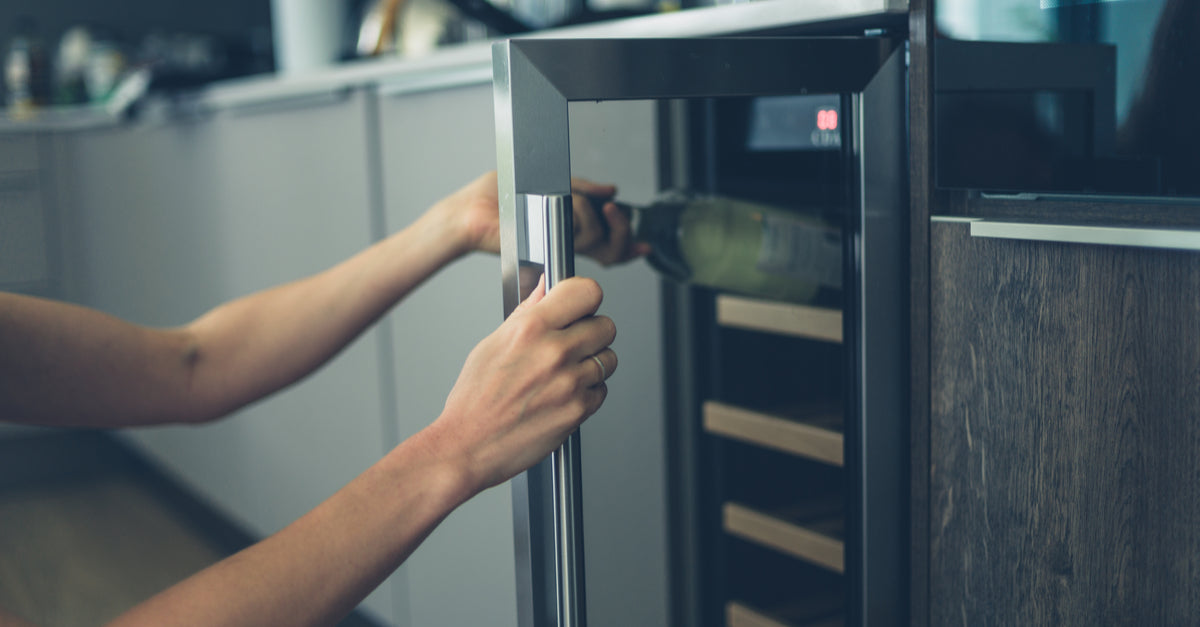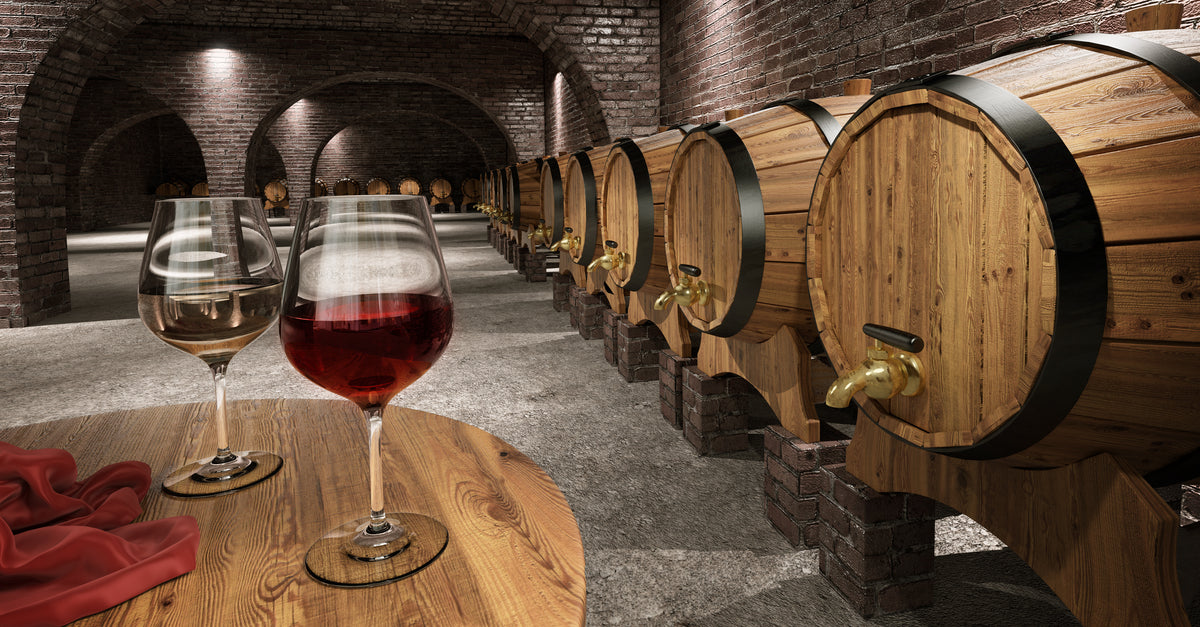Your Cart is Empty
- Valentine’s Day
- Anniversary
- Birthday
- Wine Gifts
- Wine Clubs
- Holidays
- Corporate
- Deals

When faced with the concern of how to store wine, we have all at some point had visions of picturesque wine cellars with the smell of aging wine wafting through the air. Even though a lucky few enjoy the luxury of possessing such an elaborate setting to house their priced whites and reds, we believe that you can optimally store your cherished wines in a fraction of that space and with a much lesser investment. Below we’ll answer some of the most common questions on how to store wine, so that your new and left-over wines have the best chance for long-term survival and optimal aging.

What is the optimal wine storage temperature?
Whether it’s a bottle of your favorite red wine or an exquisite bottle of champagne you scored during your travels, you probably want your wine to stay in top form until you have a chance to get to it. Storing it at the optimal temperature can go a long way in keeping your wine fresh until the next time you uncork it. Consistently storing wine at a temperature of 55 F is recommended as this is imperative to keep all varieties of wine be it red, white or rose at its freshest. Additionally, care should be taken to retain atleast 70% of relative humidity as anything less than this can be detrimental to the quality of the wine.
Where is the best place to store wine?

Where a bottle of wine is housed plays a crucial role in how it’ll taste once its uncorked. The most ideal setting for your wine would be in a cool, dark and humid place. Much like that wine cellar we described earlier. However, in the modern day complete with its space constraints, your best bet would be to invest in a wine cooler. These are refrigerators that have higher temperatures than that of a regular fridge and optimally encase wines to both stay fresh and evolve. Another great way to store your wine bottles is to keep them in a cool, dark closet that is tucked away and not often opened. Even though most colored bottles come with UV protection, it’s essential that wines stay in the dark especially if you plan to store them for a prolonged duration.
A consideration that is often overlooked in the storage of wine is that it should be stored in a way where it remains undisturbed. This would mean that storing your bottles on top of the refrigerator or in your stairway closet is probably not the best idea. Even slight tremors and vibrations can prevent wine can agitate the wine and can keep the sediment from settling, especially with red wine.
How should I place my wine while storing it?
Even though most people commonly resort to storing wine bottles upright, the best practice to store wine however would be to do so on its side. The main reason behind this is to ensure that the cork stays moist and full. Keeping bottles upright can cause the cork to dry and shrivel and let oxygen in to the bottle. This often leads to the much-dreaded oxidization of wine and can affect it’s taste negatively. Also, the answer to how to store red wine can differ greatly from how you store whites. White wines are more susceptible than red wines to oxidation because red wines contain more tannins which act as antioxidants. So, if you like white wines make an extra effort to keep them protected.
How long should I store my wines?

Contrary to popular beliefs, not all wines are meant to be stored for long periods of time. Doing so will only render them stale and definitely not improve its taste through aging. Each type of wine has a different time period for which it needs to be stored for optimal taste. Red wines, depending on their balance of sugar, acid and tannins can be stored for anywhere between 2- 10 years under the right conditions. Most white wines should be consumed after 2-3 year of storage even though select White Burgundies – a type of chardonnay, can be aged for 20 years. Champagnes and rose wine follow suit and taste best when consumed within 3 years.
How long will my wine stay fresh once opened?
We all know that storing open wines can be twice as challenging as storing their corked counterparts, mainly because its contents run the risk of rapid degeneration. The optimal way on how to store red wine great differs on how the other variants of wine can be stored. Red wines can stay out for a period of 24 hours as long as you place the cork in the bottle and put the bottle in a dark place. Anything longer than that and you’ll need to transfer the bottle to a refrigerator where it tends to stay fresh for at least 5 days. Keep dessert wines like Sauternes, most everyday Ports and most Sherries for longer. They will resist degradation for more than 3-5 days, though exactly how long depends on the individual wine. Storing an opened bottle in a fridge is generally a great way to save the remnants of your exploits, for most wines, if you plan on consuming it within a short span of time. If you have multiple refrigerators, put it in the one that is used the least. If you only have one, try not to leave the fridge open for extended periods of time. Using a slightly a bigger cork stopper and ensuring that it stays moist will avoid the wine from getting oxidized which causes early aging and eventually spoilage.
Author: Natasha P